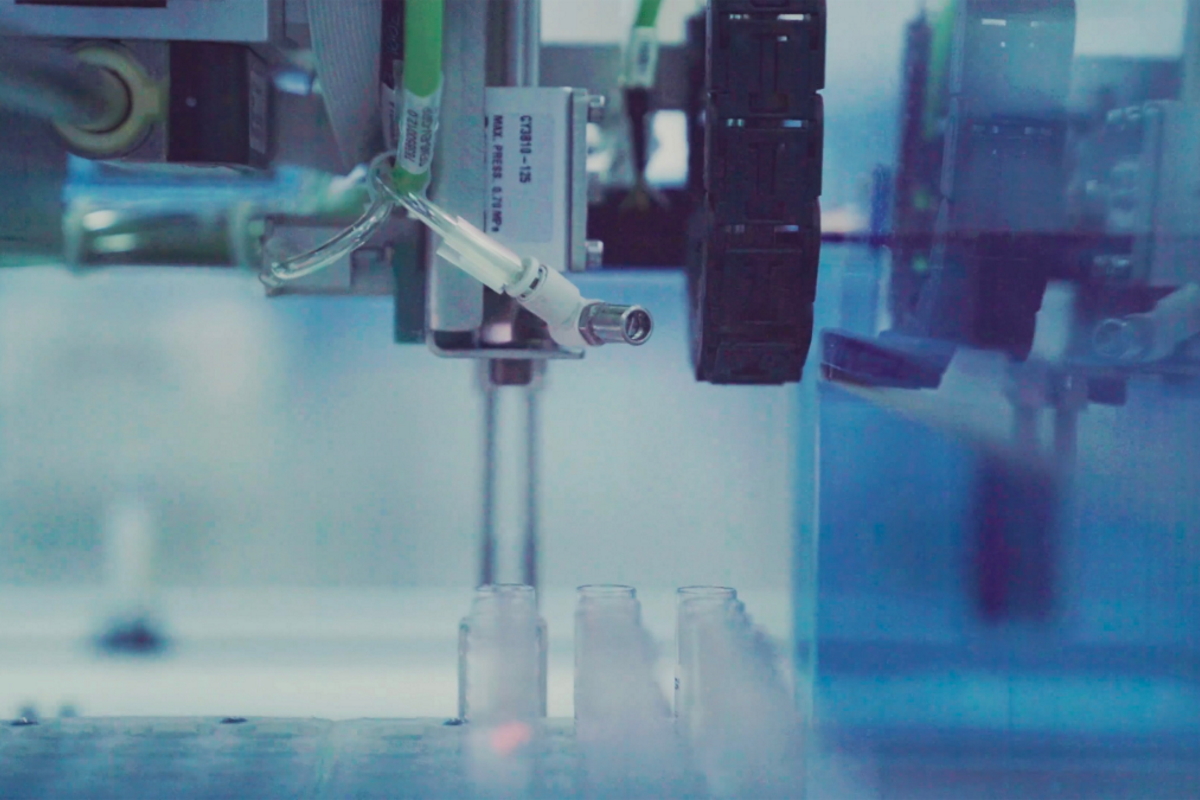Industry priorities for COVID-19 a year into the pandemic
In our latest webinar, we spoke with three industry professionals working in product teams at leading bioscience companies to discuss their research priorities during the COVID-19 pandemic and their focus moving forward.

This webinar was the first in our ‘open call for research’ series, which aims to provide R&D teams, academics and university TTOs with unique insights into how COVID-19 has changed approaches to collaboration and commercialisation.
We are currently halfway through our second open call for research (the first was launched in March 2020), in which we’re inviting academic researchers and the knowledge transfer and research commercialisation community to share with us non-confidential details of any COVID-related research, innovation or technologies to be disseminated to teams in industry with aligned interest for the purpose of starting new conversations about deployment.
COVID-19 continues to affect communities around the world, and while some of the research challenges raised by the novel virus have been addressed, new ones have emerged; the pandemic is still ongoing and there is a need for the next generation of academic research to provide new solutions.
A full breakdown of the research topics we’re looking to address with the call can be found in the call document and submission form.
What were the industry priorities for COVID-19 at the start of the pandemic?
When asked about their initial R&D priorities for COVID-19, our panellists explained that they had to quickly identify the types of technologies that their organisation wanted to prioritise, subsequently establishing a focus on therapeutics and vaccines.
Their next step was to evaluate their existing portfolio of technologies to find compounds and tools which could be repurposed or easily adapted to be effective against SARS-CoV-2. While looking for suitable technologies, some of our panellists found they had gaps in expertise for areas such as infectious diseases and prioritised building knowledge within them by working with universities and researchers.
Mapping protein expression and interaction was important to identify inhibitors that could be therapeutic targets, thus enabling researchers to refine their search and evaluation activities. Using existing technologies that already had regulatory approval, safety and clinical data, as well as known dosages, sped up the process through which COVID-19 interventions were made available.
Our panellists also spoke about the need to make their products and research available and accessible to a global audience in order to accelerate their deployment and achieve the common goals of slowing the rate of coronavirus infection and reducing mortalities.
What are industry priorities for COVID-19 a year in?
Our panellists all said that their aims have changed from the beginning of the pandemic. As vaccines that reduce the symptoms of coronavirus are being rolled out globally, companies have started to reduce the resources they are directing to COVID-19 related research, dropping potential vaccines and antivirals that are no longer viable solutions or were not completed in time to compete with those first on the market.
There is still a need for quick solutions to coronavirus complications as the virus mutates. As such, companies are looking for automation tools and platform technologies to speed up COVID-19 research while allowing them to continue work on other projects that were put on hold to prioritise COVID-19 research.
MSD is still providing an accelerated review of COVID-19 research that is submitted to them, maintaining their 3-5 day turnaround throughout the pandemic. Bio-Techne also maintains several open channels for submission & review of covid-related research.
In addition to predictive modelling technologies, our panellists are interested in managing coronavirus in a more general way, developing non-specific antivirals that cover many strains of the virus including future mutations.
Many companies have established their place in the product pipeline regarding COVID-19 technologies, so our panellists are looking for products that will differentiate them from others on the market. The types of products suggested by our panel included single-shot vaccines, compounds that allow vaccines to be stored at room temperature, and alternative delivery methods of vaccines and therapeutics such as intranasally or orally.
While much of the R&D activity from industry and academia has been reactive to the pandemic, our panellists are looking into the future of the current pandemic and the potential for future global health challenges. They stated the need for modelling and predictive technologies to allow scientists to better prepare for future disease outbreaks and therefore able to respond more quickly and support the wider community effectively.
Access the full recording of the webinar:
Written by Frances Wilkinson. Edited by Alex Stockham.
Copyrights reserved unless otherwise agreed – IN-PART Publishing Ltd., 2021: ‘Industry priorities for COVID-19 one year into the pandemic’
About IN-PART:
We believe brilliant connections can solve real-world problems. We match research pioneers from academia with decision-makers in industry sectors striving for a greater positive impact.
Our goal is to enable connections from around the world to match academic research with industry on a level playing field. Through our intelligent, matchmaking platform we showcase leading university innovations and connect academics with an international community of decision-makers in industry, creating meaningful dialogue and partnership.
IN-PART, a digital partnering platform for university-industry collaboration.
250+ universities and research institutes around the world currently showcase their research and innovation on IN-PART to find new collaboration partners in industry. R&D teams get free access to the platform (create an account here). There are no hidden costs and we don’t claim downstream success fees.
Discover, a bespoke scouting service for open innovation.
Through Discover, corporate R&D teams can leverage our extended academic network, which reaches multiple teams across 1,200+ universities and research institutes worldwide. In response to a specific research requirement or challenge, Discover enables R&D teams to identify new opportunities for commercialisation or to solicit proposals for new research.
Interested in speaking with our Discover team? Request a demo | TTO or academic? Sign-up for weekly Discover emails.

Image Credit: IN-PART panellist flyer: Quinted de Graaf / Unsplash Licence; Header Image: testalize me/Unsplash License

